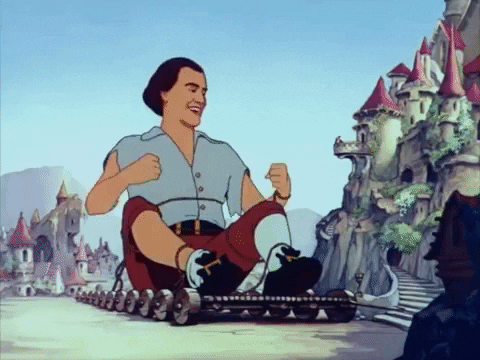What do you think?
Rate this book


304 pages
First published January 1, 1726
They bury their dead with their heads directly downwards, because they hold an opinion that in eleven thousand moons they are all to rise again, in which period the earth (which they conceive to be flat) will turn upside down, and by this means they shall, at their resurrection, be found ready standing on their feet. The learned among them confess the absurdity of this doctrine, but the practice still continues, in compliance to the vulgar.When Swift is on his game, he is very, very effective.
I told him of 鈥榓n invention, discovered between three and four hundred years ago, to make a certain powder鈥t]hat a proper quantity of this powder鈥ould drive a ball of iron or lead, with such violence and speed, as nothing was able to sustain its force. That the largest balls thus discharged, would not only destroy whole ranks of an army at once, but batter the strongest walls to the ground, sink down ships, with a thousand men in each, to the bottom of the sea, and when linked together by a chain, would cut through masts and rigging, divide hundreds of bodies in the middle, and lay all waste before them. That we often put this powder into large hollow balls of iron, and discharged them by an engine into some city we were besieging, which would rip up the pavements, tear the houses to pieces, burst and throw splinters on every side, dashing out the brains of all who came near鈥�Sorry for the long quote, but I thought that was a particularly moving passage.
...The king was struck with horror at the description I had given of those terrible engines, and the proposal I had made. 鈥楬e was amazed, how so impotent and groveling an insect as I鈥ould entertain such inhuman ideas, and in so familiar a manner, as to appear wholly unmoved at all the scenes of blood and desolation which I had painted as the common effects of those destructive machines; whereof,鈥� he said, 鈥榮ome evil genius, enemy to mankind, must have been the first contriver.鈥� As for himself, he protested, that although few things delighted him so much as new discoveries in art or in nature, yet he would rather lose half his kingdom, than be privy to such a secret; which he commanded me, as I valued any life, never to mention any more.
The first man I saw was of a meagre aspect, with sooty hands and face鈥H]e has been eight years upon a project for extracting sunbeams out of cucumbers, which were to be put in phials hermetically sealed, and let out to warm the air in raw inclement summers. He told me, he did not doubt, that, in eight years more, he should be able to supply the governor鈥檚 gardens with sunshine, at a reasonable rate鈥�.Gulliver鈥檚 exploration of the scientific academy of Laputa was my favorite part of the novel and I thought Swift鈥檚 satiric chops were at there sharpest in relaying the societal dysfunction of the Laputans.听
Everyone knows how laborious the usual method is of attaining to arts and sciences; whereas by his contrivance, the most ignorant person at a reasonable charge, and with a little bodily labour, may write books in philosophy, poetry, politics, law, mathematics and theology, without the least assistance from genius or study. He then led me to the frame, about the sides whereof all his pupils stood in ranks. It was twenty foot square, placed in the middle of the room. The superficies was composed of several bits of wood, about the bigness of a die, but some larger than others. They were all linked together by slender wires. These bits of wood were covered on every square with papers pasted on them; and on these papers were written all the words of their language in their several moods, tenses, and declensions, but without any order. The professor then desired me to observe, for he was going to set his engine at work.
...an author perfectly blameless, against whom the tribe of answerers, considerers, observers, reflecters, detecters, remarkers, will never be able to find matter for exercising their talents.
.. a monster, gibbering shrieks and gnashing imprecations against mankind 鈥� tearing down all shreds of modesty, past all sense of manliness and shame; filthy in word, filthy in thought, furious, raging, obscene.
That the use of speech was to make us understand one another, and to receive information of facts; now if any one said the thing which was not, these ends were defeated.
He gave the little wealth he had,
To build a House for Fools and Mad.
And shew鈥檇 by one Satyric Touch,
No Nation needed it so much.

